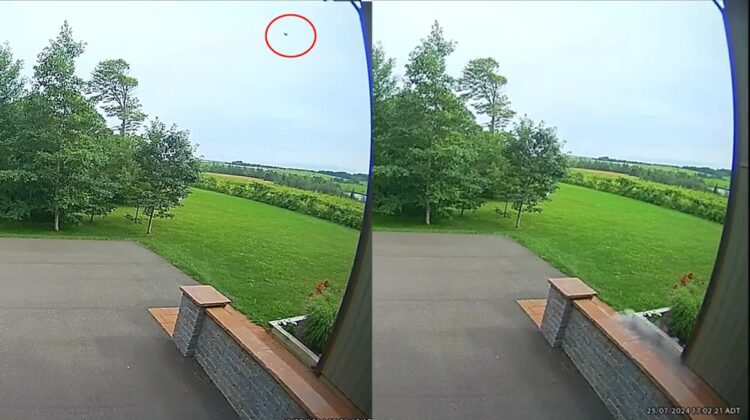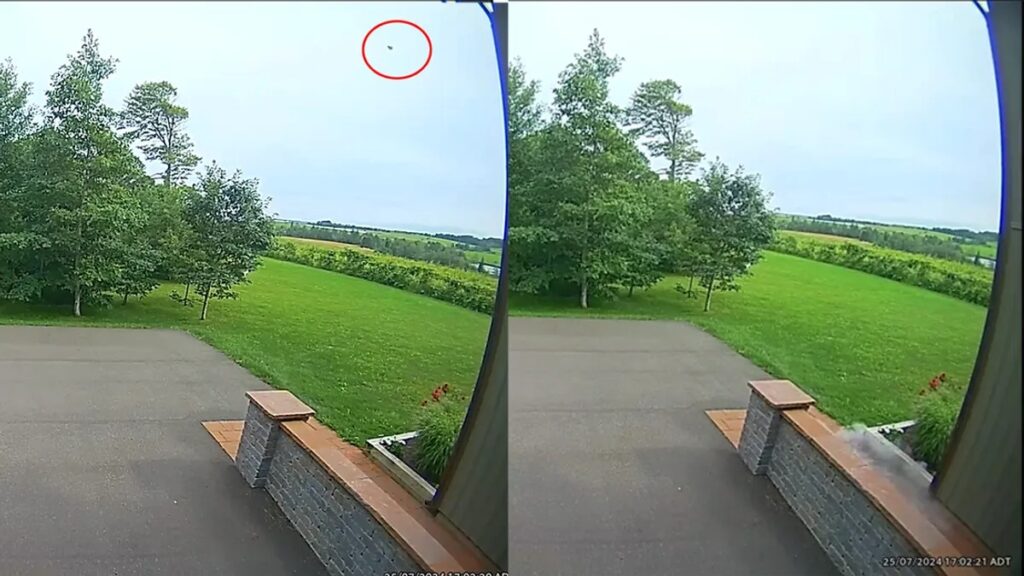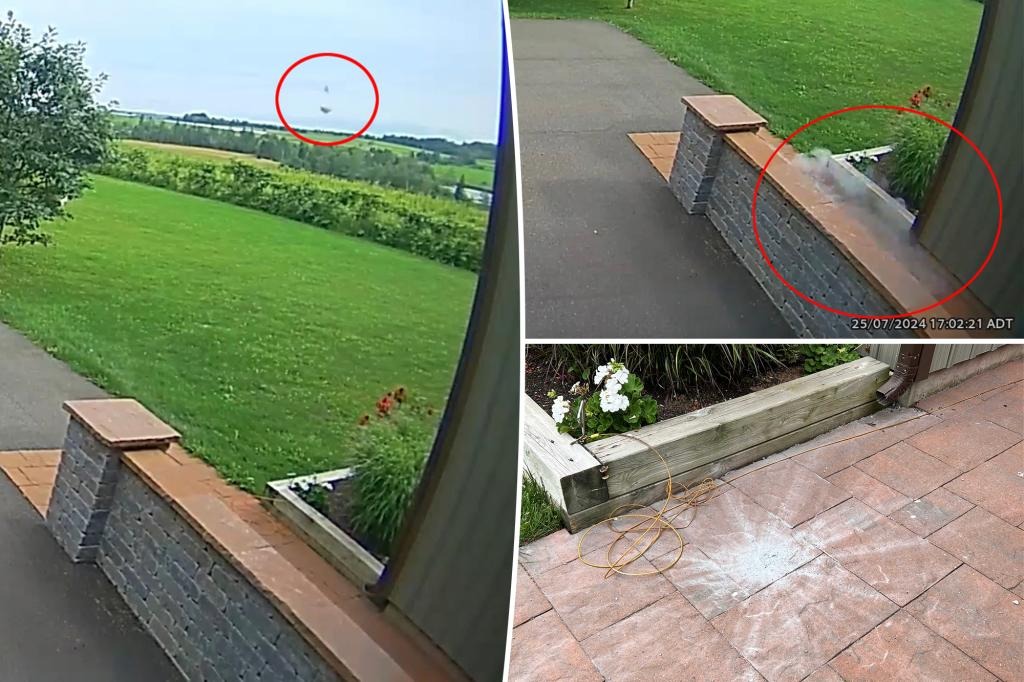
In an unprecedented event, a meteorite strike was not only witnessed but captured on both video and audio for the first time. This rare occurrence unfolded outside the home of Joe Velaidum in Marshfield, Prince Edward Island, Canada. The incident has fascinated scientists and captivated the public, shedding light on the extraordinary journey of space rocks that travel millions of miles to reach Earth.
The Incredible Close Call
Joe Velaidum had no idea that his routine activity would place him at the heart of a scientific breakthrough. Standing in his yard last July, he paused to move a dog leash before taking his pet for a walk. Little did he know, a meteorite was hurtling toward the exact spot where he stood just minutes earlier.
“In retrospect, if I had stayed in that spot for another minute, I would have been hit by the meteorite,” Velaidum shared with Compass Media.
As luck would have it, Velaidum and his dogs were safely away when the meteorite struck. When he returned home, he discovered dark, unusual debris scattered across his yard. Curious, he checked his door camera footage, which revealed the remarkable moment the meteorite impacted, complete with a visible streak of light falling from the sky.

Scientific Investigation of the Meteorite
With encouragement from his partner’s father, Velaidum collected samples of the debris and sent them to Dr. Chris Herd, a curator of the meteorite collection at the University of Alberta.
Dr. Herd identified the fragments as chondrites, the oldest known rocks in our Solar System. “This is a piece of natural history that traveled hundreds of millions of miles and landed right where Joe stood minutes earlier,” Herd remarked.
Why This Event is Groundbreaking
Meteorites hit Earth daily, depositing an estimated 44,000 kilograms (48.5 tons) of material. However, most impacts go unnoticed or are not captured on film. What sets this event apart is its comprehensive documentation.
Dr. Herd explained, “This is the first time we’ve documented a meteorite strike with both video and sound. It’s a new dimension for meteorite studies.”
The meteorite, traveling at speeds of approximately 60,000 kilometers per hour (37,282 miles per hour), slowed to 200 kilometers per hour (124 miles per hour) before impact. Despite its reduced velocity, the energy and sound of its arrival provided valuable data for researchers.
A Rare Phenomenon in Meteorite Studies
The audio recording of the meteorite’s descent has added a groundbreaking element to meteorite science. According to Herd, “No other meteorite fall has been documented in this way. This is a pivotal moment for both science and the natural history of Prince Edward Island.”

This extraordinary event has not only deepened our understanding of meteorites but also highlighted the sheer unpredictability of such encounters. For Joe Velaidum, it was a brush with cosmic history, narrowly escaping what could have been a catastrophic event.
As scientists analyze the data from this rare occurrence, the discovery reminds us of the vastness and wonder of the universe—and its occasional reminders that Earth is part of a much larger cosmic story.

Leave a Reply